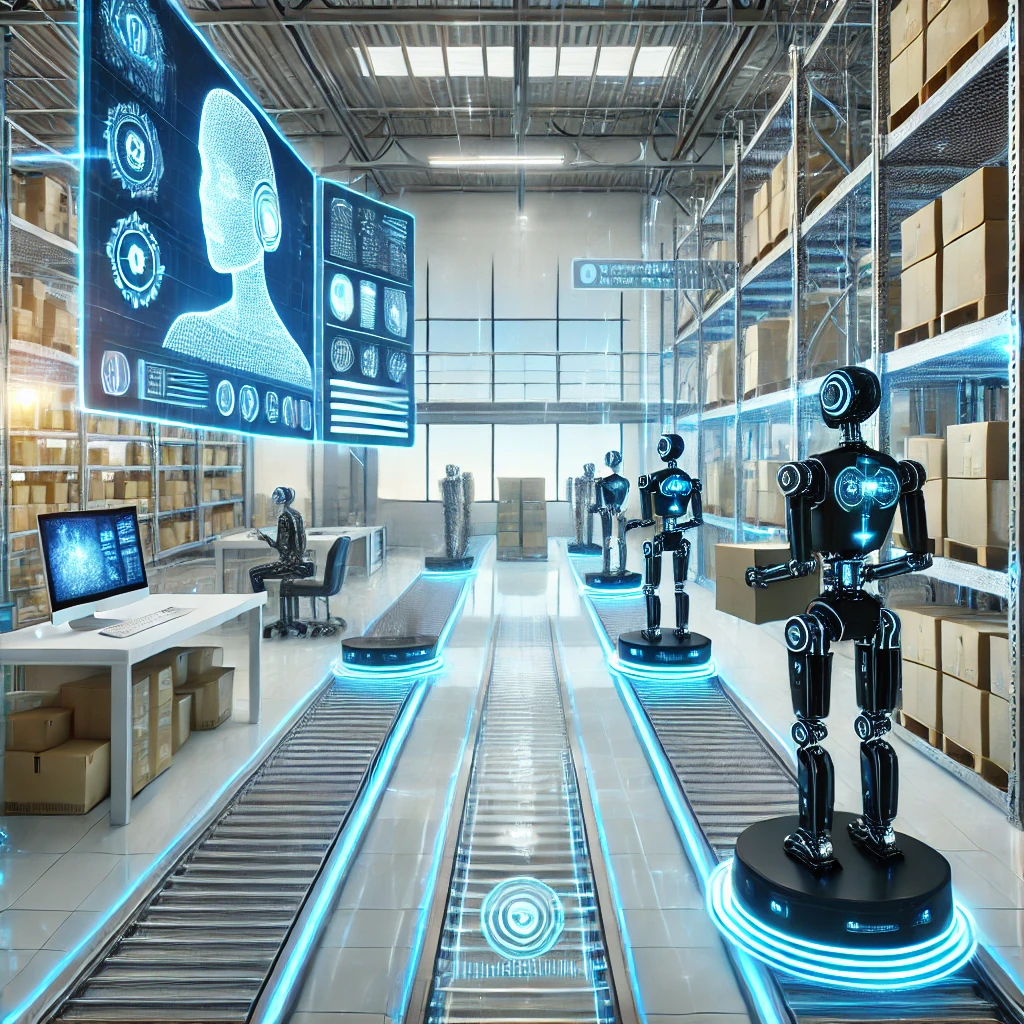Discover how AI-driven supply chains are revolutionizing logistics, manufacturing, and supply chain management. Learn about the latest initiatives leveraging artificial intelligence to optimize processes, reduce costs, and improve efficiency in global trade.
AI-Driven Supply Chains: Transforming Logistics and Manufacturing for the Future
In today’s fast-paced global economy, supply chain management has become more complex than ever before. Companies are turning to Artificial Intelligence (AI) to optimize logistics, streamline manufacturing, and enhance operational efficiency. The integration of AI-driven supply chains is not just a trend—it’s a game-changing transformation that’s reshaping industries worldwide.
This blog delves into how AI is revolutionizing supply chains, highlighting its benefits, key initiatives, and future potential.
The Role of AI in Supply Chains
Artificial intelligence uses advanced technologies like machine learning, predictive analytics, and robotic automation to optimize supply chain processes. These technologies analyze vast amounts of data to provide real-time insights, improve decision-making, and enhance overall efficiency.
Key applications of AI in supply chains include:
- Predictive Demand Forecasting: AI algorithms analyze historical data to predict future demand trends, enabling better inventory management.
- Route Optimization: AI-powered systems calculate the most efficient delivery routes, reducing costs and improving delivery times.
- Warehouse Automation: Robotics and AI streamline warehouse operations, from picking and packing to inventory tracking.
- Risk Management: AI identifies potential disruptions in supply chains, such as weather events or geopolitical issues, and suggests contingency plans.
- Supplier Relationship Management: AI helps businesses evaluate supplier performance and ensure compliance with contracts and regulations.
Key Initiatives Leveraging AI-Driven Supply Chains
Governments and private enterprises worldwide are investing heavily in AI technologies to transform supply chain management. Here are some notable initiatives:
- Smart Logistics Platforms
Companies like Amazon and DHL are leveraging AI to create smart logistics platforms that enable real-time tracking, route optimization, and predictive maintenance for their fleets. - Digital Twins in Supply Chains
The concept of digital twins—virtual replicas of physical supply chain networks—allows businesses to simulate operations and test scenarios using AI. - AI-Powered Procurement Systems
AI is transforming procurement by automating supplier selection, contract negotiations, and pricing strategies. - Sustainable Supply Chain Management
AI-driven analytics are helping companies reduce their carbon footprint by optimizing transportation routes and energy usage in manufacturing processes. - AI for Real-Time Inventory Visibility
Advanced AI systems provide real-time visibility into inventory levels, enabling businesses to reduce stockouts and excess inventory.
Benefits of AI-Driven Supply Chains
The adoption of AI in supply chains offers several benefits, including:
- Cost Savings: AI reduces operational costs by optimizing logistics, minimizing waste, and improving resource allocation.
- Improved Accuracy: Predictive analytics ensures more accurate demand forecasting and inventory planning.
- Enhanced Speed: Automation speeds up processes like order fulfillment, shipping, and manufacturing.
- Better Customer Experience: AI enables faster deliveries, real-time tracking, and more personalized customer interactions.
- Sustainability: AI-driven systems help companies implement eco-friendly practices, reducing their environmental impact.
Challenges and the Road Ahead
While the potential of AI-driven supply chains is immense, there are challenges to overcome:
- High Initial Costs: Implementing AI technologies requires significant investment.
- Data Security Risks: With increased reliance on data, ensuring cybersecurity becomes critical.
- Skill Gaps: Companies need skilled professionals to manage AI systems effectively.
Despite these challenges, the future of AI-driven supply chains is bright. Businesses that embrace AI technologies will gain a competitive edge in a rapidly evolving market.
Conclusion
The rise of AI-driven supply chains marks a new era in logistics, manufacturing, and supply chain management. By leveraging AI technologies, businesses can achieve greater efficiency, reduce costs, and deliver superior customer experiences.
As initiatives in AI continue to grow, companies that invest in these innovations will lead the way in shaping the future of global trade.


